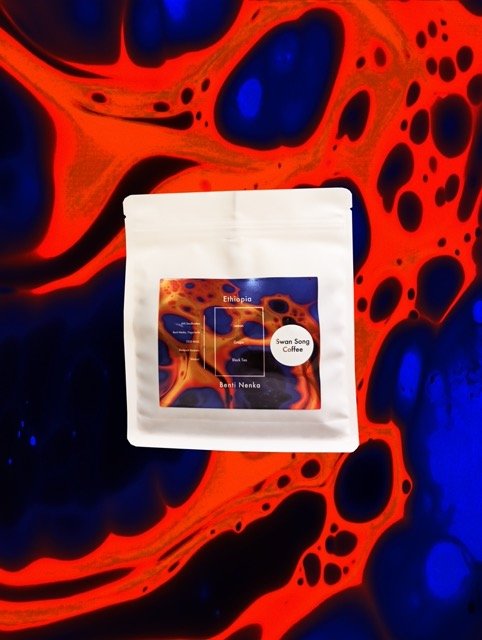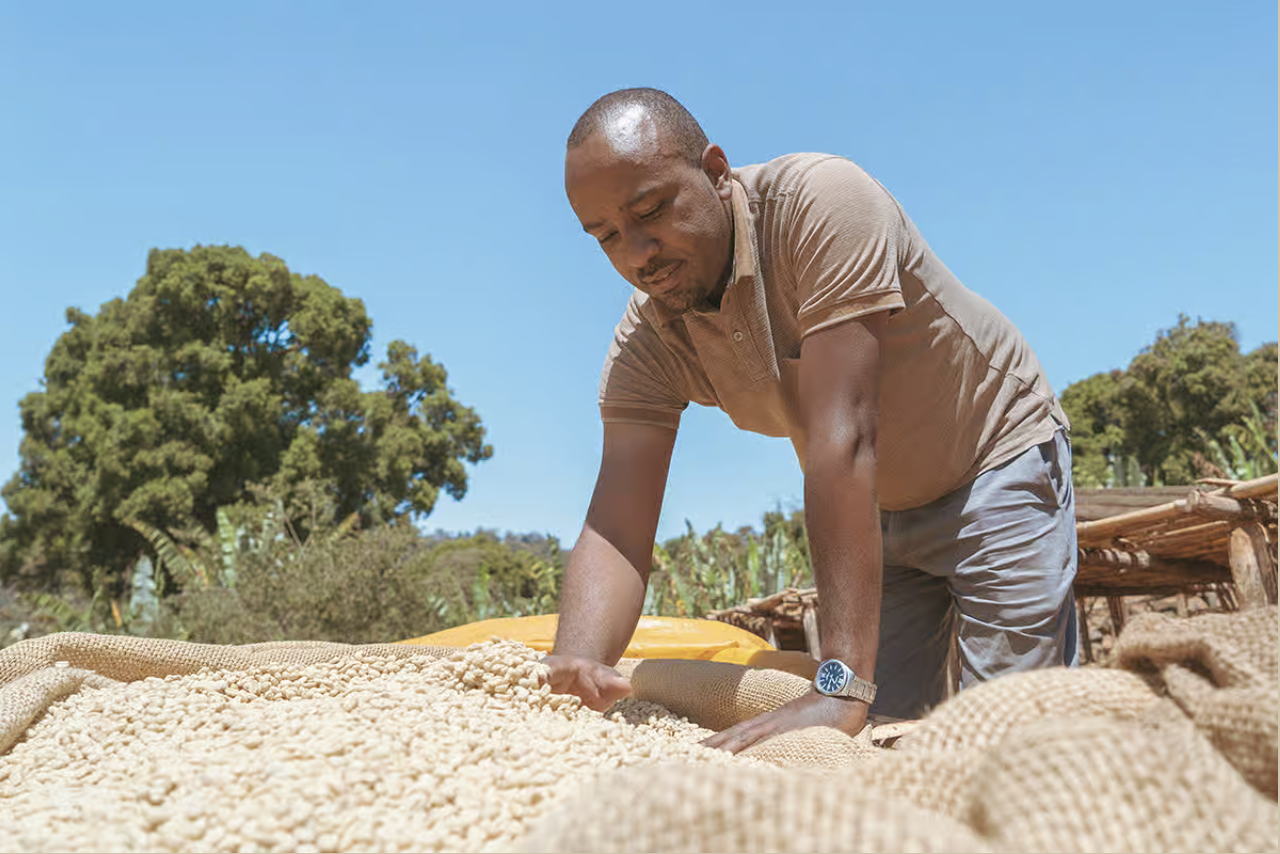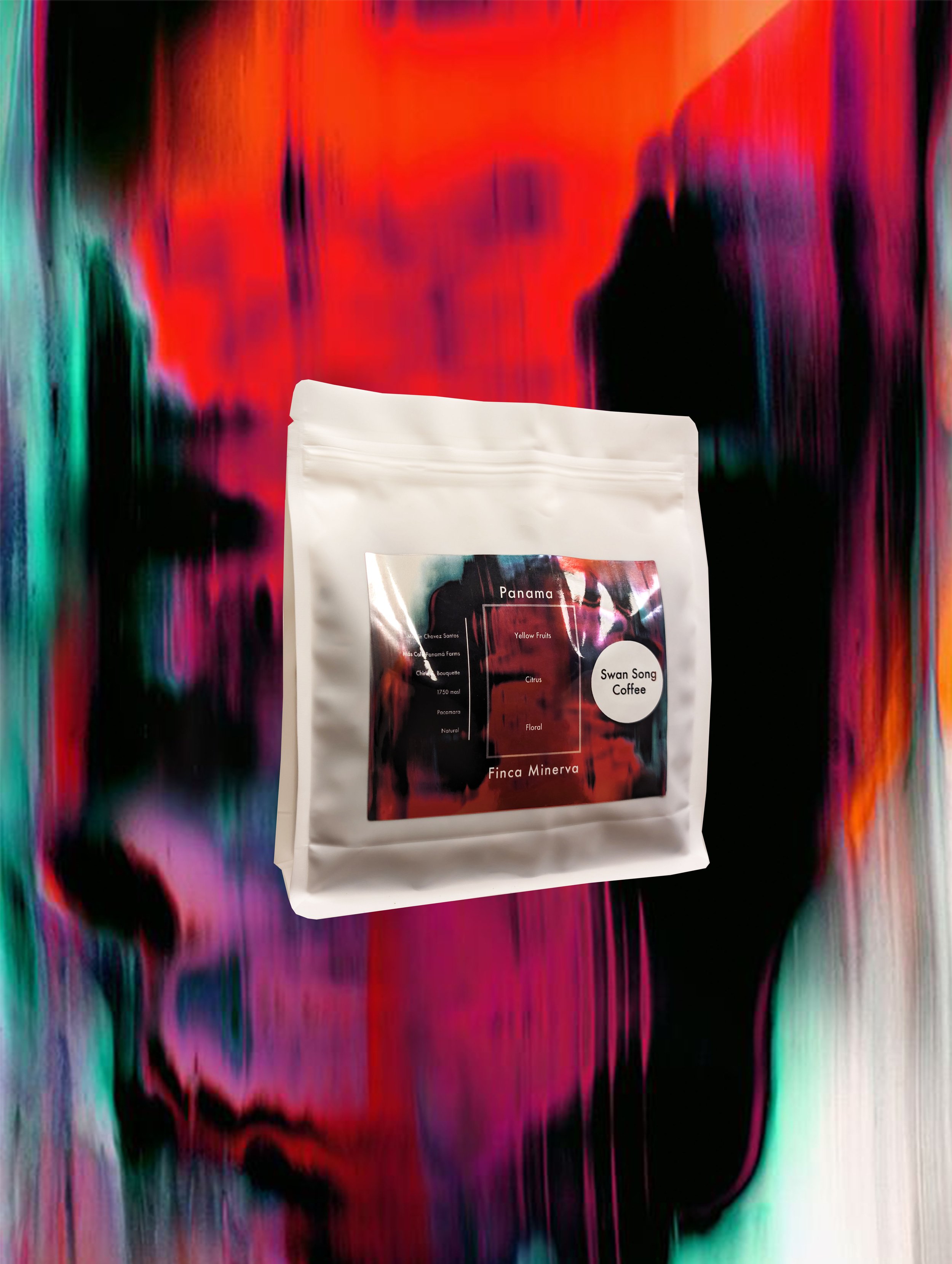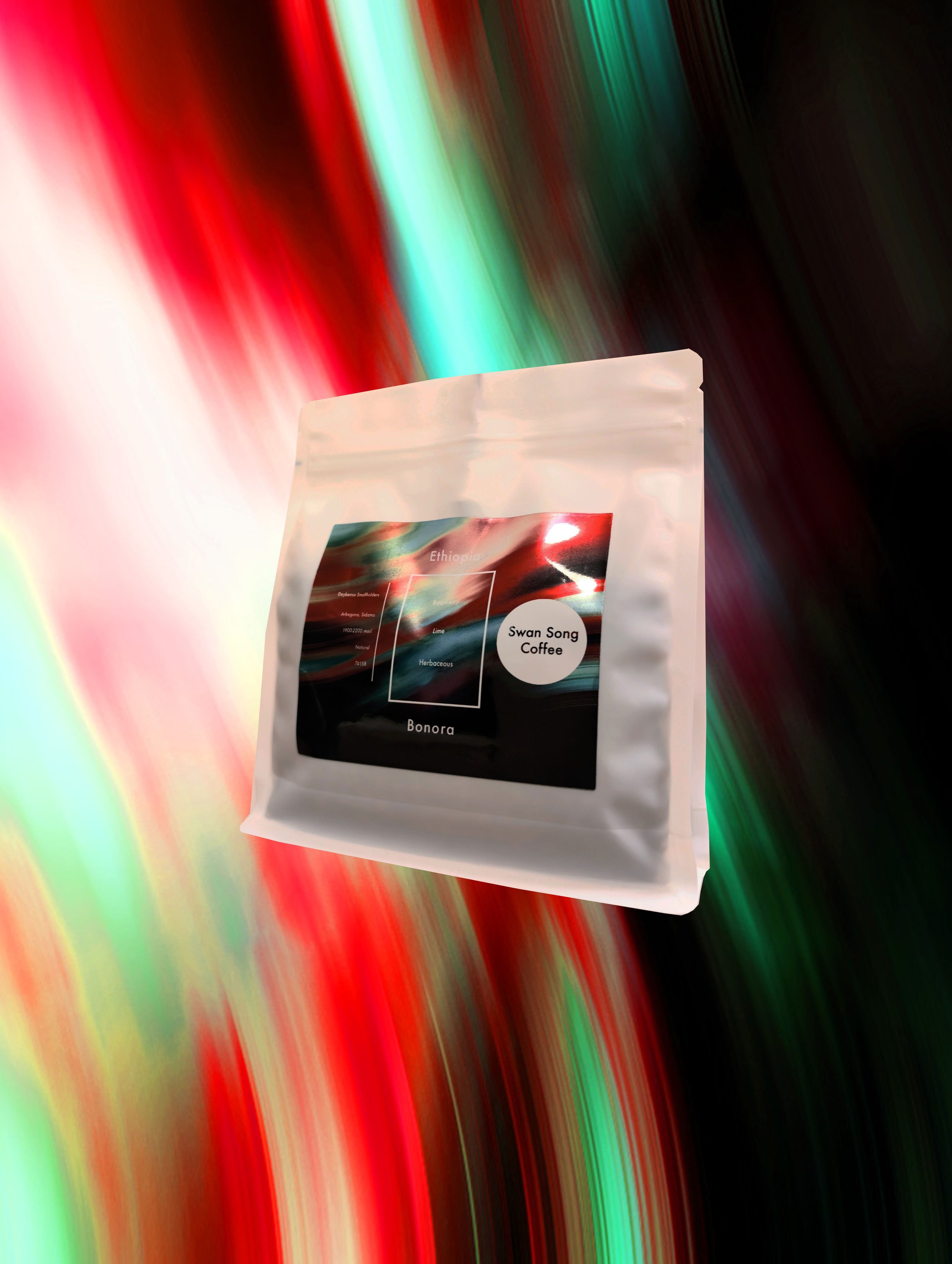Ethiopia Benti Nenka. Washed. G1. Heirloom.
Origin: Ethiopia
Region: Guji, Oromia
Producer/Farm: 600 Smallholders
Altitude: 2250m
Varietal: Heirloom Varietals
Process: Washed
Harvest: 2023/2024
Importer: Wete Ambela Coffee
Cupping Score: 86.00
FOB/Volume: £9.50 per Kg / 60 Kilos
Roasted for Espresso and Filter
We taste: Lemon, Grape and Black Tea.
The Story:
Wete Ambera Coffee is a startup founded in 2018. The background to their founding was the deregulation of ECX. In 2017, the rules of ECX changed, making it relatively easy to obtain an export license and allowing direct trade under the system. Mekuria Mergia has a deep connection with small-scale producers and can obtain high-quality coffee. One thing he always values is building trusting relationships with producers and improving the living environment for producers.
Located in the Benti Nenka village of Hambela Wamena, Guji, the Guduba Wet Mill processes coffee from 589 smallholder farmers, each managing plots ranging from 1 to 2 hectares. Established in 2012, the mill sits at an elevation of 1,900 to 2,170 meters, contributing to the coffee's unique quality.
Guji farmers adhere to traditional farming practices, often intercropping coffee with other food crops to maximize land use. These farms operate organically by default, with minimal reliance on fertilizers or pesticides. Most agricultural tasks, including harvesting, are performed manually due to the small scale of the farms.
The coffee cherry is hand-picked by the farmers and transported to the mill’s collection points, where it undergoes meticulous sorting and selection to remove any overripe, under-ripe, or damaged beans, ensuring excellent quality selection for further processing of speciality grade export coffees.
While Benti Nenka has a cold anaerobic processing facility, this lot went straight to raised African beds where it undergoes a slow-drying process, taking 20 to 25 days in partial shade on elevated African beds until reaching a moisture content of 11%. Regular turning of the coffee ensures proper air circulation and temperature control to prevent over-fermentation and mould.
A moisture meter is used to monitor and regulate the moisture level. Once it reaches 11%, the coffee is then transported to a local warehouse, where further sorting and quality control measures are upheld to prepare the coffee for the final milling and export stage.
Origin: Ethiopia
Region: Guji, Oromia
Producer/Farm: 600 Smallholders
Altitude: 2250m
Varietal: Heirloom Varietals
Process: Washed
Harvest: 2023/2024
Importer: Wete Ambela Coffee
Cupping Score: 86.00
FOB/Volume: £9.50 per Kg / 60 Kilos
Roasted for Espresso and Filter
We taste: Lemon, Grape and Black Tea.
The Story:
Wete Ambera Coffee is a startup founded in 2018. The background to their founding was the deregulation of ECX. In 2017, the rules of ECX changed, making it relatively easy to obtain an export license and allowing direct trade under the system. Mekuria Mergia has a deep connection with small-scale producers and can obtain high-quality coffee. One thing he always values is building trusting relationships with producers and improving the living environment for producers.
Located in the Benti Nenka village of Hambela Wamena, Guji, the Guduba Wet Mill processes coffee from 589 smallholder farmers, each managing plots ranging from 1 to 2 hectares. Established in 2012, the mill sits at an elevation of 1,900 to 2,170 meters, contributing to the coffee's unique quality.
Guji farmers adhere to traditional farming practices, often intercropping coffee with other food crops to maximize land use. These farms operate organically by default, with minimal reliance on fertilizers or pesticides. Most agricultural tasks, including harvesting, are performed manually due to the small scale of the farms.
The coffee cherry is hand-picked by the farmers and transported to the mill’s collection points, where it undergoes meticulous sorting and selection to remove any overripe, under-ripe, or damaged beans, ensuring excellent quality selection for further processing of speciality grade export coffees.
While Benti Nenka has a cold anaerobic processing facility, this lot went straight to raised African beds where it undergoes a slow-drying process, taking 20 to 25 days in partial shade on elevated African beds until reaching a moisture content of 11%. Regular turning of the coffee ensures proper air circulation and temperature control to prevent over-fermentation and mould.
A moisture meter is used to monitor and regulate the moisture level. Once it reaches 11%, the coffee is then transported to a local warehouse, where further sorting and quality control measures are upheld to prepare the coffee for the final milling and export stage.
Origin: Ethiopia
Region: Guji, Oromia
Producer/Farm: 600 Smallholders
Altitude: 2250m
Varietal: Heirloom Varietals
Process: Washed
Harvest: 2023/2024
Importer: Wete Ambela Coffee
Cupping Score: 86.00
FOB/Volume: £9.50 per Kg / 60 Kilos
Roasted for Espresso and Filter
We taste: Lemon, Grape and Black Tea.
The Story:
Wete Ambera Coffee is a startup founded in 2018. The background to their founding was the deregulation of ECX. In 2017, the rules of ECX changed, making it relatively easy to obtain an export license and allowing direct trade under the system. Mekuria Mergia has a deep connection with small-scale producers and can obtain high-quality coffee. One thing he always values is building trusting relationships with producers and improving the living environment for producers.
Located in the Benti Nenka village of Hambela Wamena, Guji, the Guduba Wet Mill processes coffee from 589 smallholder farmers, each managing plots ranging from 1 to 2 hectares. Established in 2012, the mill sits at an elevation of 1,900 to 2,170 meters, contributing to the coffee's unique quality.
Guji farmers adhere to traditional farming practices, often intercropping coffee with other food crops to maximize land use. These farms operate organically by default, with minimal reliance on fertilizers or pesticides. Most agricultural tasks, including harvesting, are performed manually due to the small scale of the farms.
The coffee cherry is hand-picked by the farmers and transported to the mill’s collection points, where it undergoes meticulous sorting and selection to remove any overripe, under-ripe, or damaged beans, ensuring excellent quality selection for further processing of speciality grade export coffees.
While Benti Nenka has a cold anaerobic processing facility, this lot went straight to raised African beds where it undergoes a slow-drying process, taking 20 to 25 days in partial shade on elevated African beds until reaching a moisture content of 11%. Regular turning of the coffee ensures proper air circulation and temperature control to prevent over-fermentation and mould.
A moisture meter is used to monitor and regulate the moisture level. Once it reaches 11%, the coffee is then transported to a local warehouse, where further sorting and quality control measures are upheld to prepare the coffee for the final milling and export stage.




















